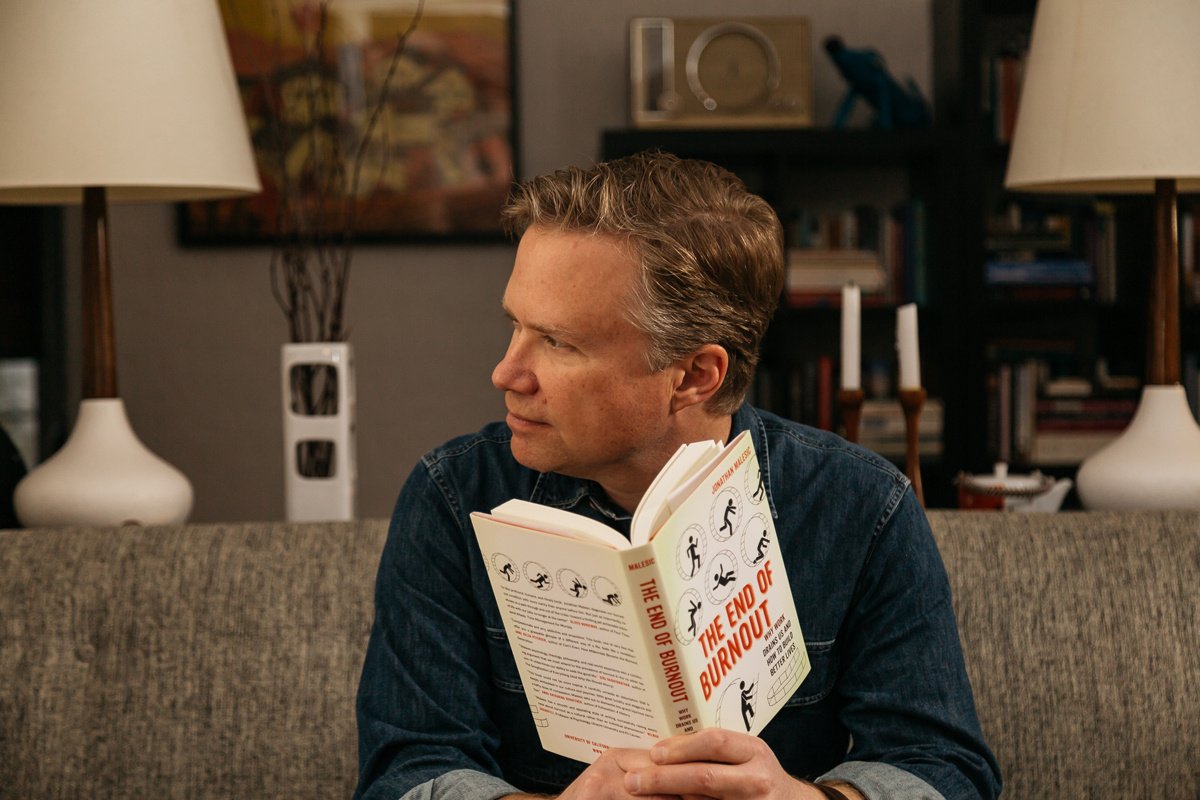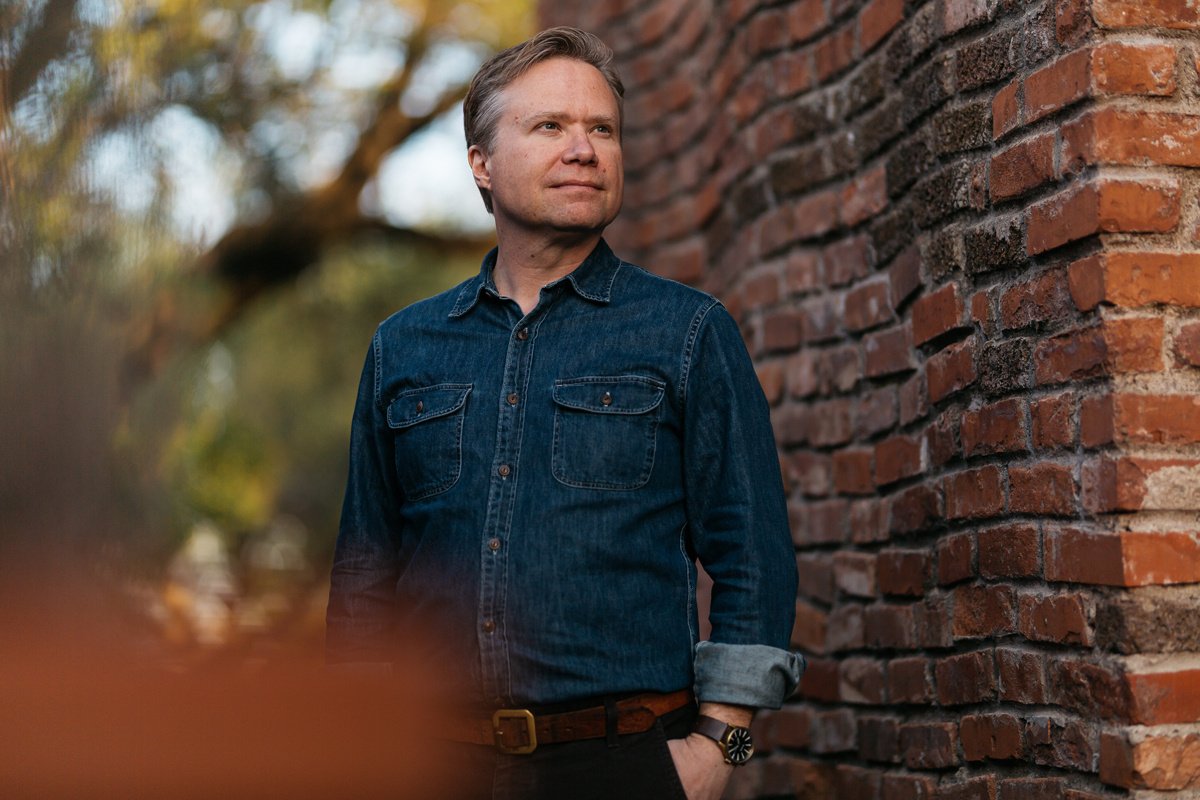Jonathan Malesic on the problem with normalizing burnout
Apr 11, 2022
9 mins
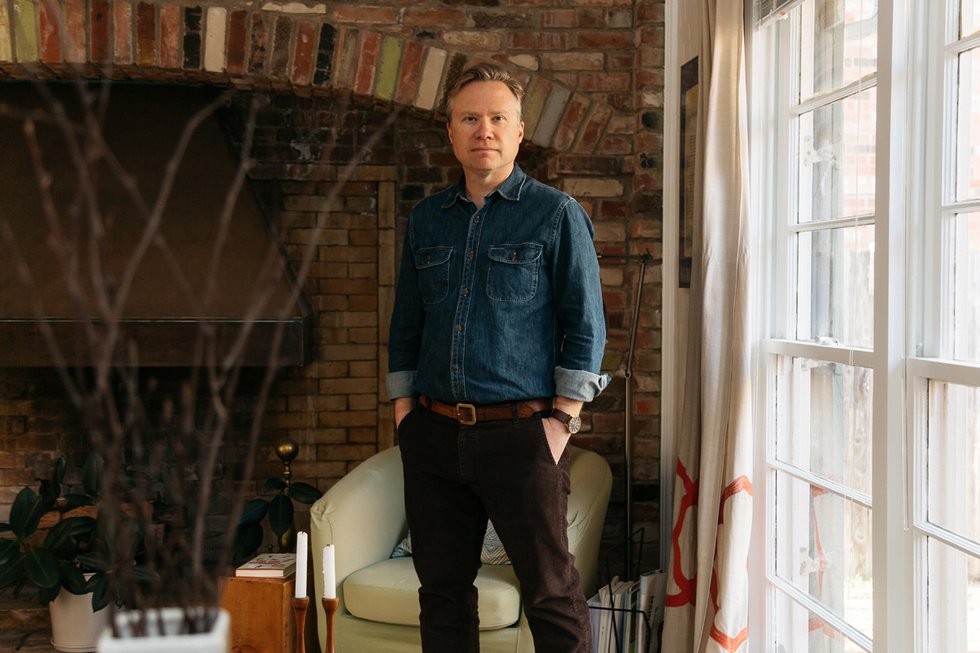

Journalist
Jonathan Malesic seemed to have it all. His dream was to follow in the footsteps of the academics who inspired him as a student. And he was living it, working as a theology professor at King’s College in Wilkes-Barre, Pennsylvania, with a comfortable salary, and tenure. Despite all this he was miserable, and his “dream job” was at the center of that feeling. After much deliberation and research, he realized he was suffering from burnout. He defines burnout as a cultural phenomenon that has become more prominent in American society over the past few years. It comes from our belief that work is not only the route to a paycheck, but also our sense of personal dignity and purpose—and it’s the reason nearly 40 million Americans quit their job in 2021. We sat down with Jonathan Malesic, author of The End of Burnout, to go deeper into the phenomenon, its effect on us, and what we can do as a society to work through it.
So tell us a little bit about the journey that led to you writing The End of Burnout.
I had been a professor of theology, and that was my dream job. When I met with my own college professors, I knew it was what I wanted to do. And I did it. One of my research and teaching interests was the issues that arise out of the moral and spiritual questions our work puts to us. I taught a class called “Why Work?” At some point that question became much more than academic—it became existential.
Even though I’d had my dream job, for some reason I barely made it out of bed. I would wake up and dread having to go to work and face my students and colleagues. I didn’t have a word for what was happening to me, and I thought that it was my fault, that something was wrong with me. This went on for a couple of years, including one semester when I took unpaid leave. Even that didn’t help. I was right back where I started once I returned to work. Eventually I quit. The occasion for that was when my wife got a job teaching thousands of miles away in Dallas, Texas.
That was my chance. And it was in the months following my decision to quit that I started to think about burnout as a possible explanation for what had gone wrong. Being a researcher at heart, I tried to understand what this term meant. And as I did, what happened to me started to make more sense.
You define burnout as something quite specific. But how did you know that was what you were experiencing, and not, say, depression or anxiety?
When I was researching burnout, I kept encountering Christina Maslach—the standard instrument to measure burnout is called the Maslach Burnout Inventory. It’s a 22-question survey and is not meant to be a diagnostic tool, but a research tool. It measures exhaustion, cynicism and ineffectiveness. I scored very high on the exhaustion measure, and in the middle range on cynicism. Looking back, that’s surprising. I had a very low sense of personal accomplishment. My therapist said they didn’t think it was clinical depression. I had been taking antidepressants and they helped a little, but not a whole lot. It’s true that burnout and depression can look a lot alike. But in my case? Once I quit my job and moved to Texas, the problem was gone. But with depression, there’s no move you can make to escape it so easily.
Culturally, we’re a little bit more accepting of people who diagnose themselves with burnout as opposed to depression. And because there’s so much overlap between what these things feel like, people who believe they’re facing burnout should probably get screened for depression. It’s very easy to say, “It’s not clinical depression, it’s just burnout. And we’re all burned out. So, you know, it’s no big deal!” That’s the problem.
“It’s very easy to say, “It’s not clinical depression, it’s just burnout. And we’re all burned out. So, you know, it’s no big deal!” That’s the problem.”
What impact did burnout have on your worklife?
It dominated my life so that when work went bad, everything else felt like it was going bad, too. At work, the manifestation of burnout was just a real unwillingness to show up. I had a job where I didn’t have to be physically present, except for classes and meetings. So there were days when I could just hide out at home. I was frequently late for class. And it’s not like I was teaching early classes, it was just a struggle to drag myself there. Preparing for class became increasingly difficult. I procrastinated as much as possible. The planning was so hard. I’ve been teaching for years, but I just could not visualize how to teach a class.
My progress and my research stalled. My temper got shorter. I can remember being at a conference and I went up to the scholar I wanted to chat with and he brushed me off. That infuriated me. I didn’t blow up at him, but when I called my wife later I just ranted for the longest time about this very minor slight. I was so unhappy and it was irrational. I didn’t think I was the teacher, or the scholar, or the colleague I had once been. I had made work a central source of meaning in my life, so everything felt bad.
“I didn’t think I was the teacher, or the scholar, or the colleague I had once been. I had made work a central source of meaning in my life, so everything felt bad.”
How did you move forward—and would you say that you’re cured?
I would say I’m cured for sure. The main reason is that I’m out of the environment that was causing the problem in the first place. Burnout is not a thing inside you that has gone wrong. It’s the relationship between your ideals for work and the reality of your job. The reality of my job has totally changed. Now I’m a freelance writer and a part-time instructor at a university. I don’t make nearly as much as I did before. But neither of those jobs means everything to me. So the ideals have changed and the reality has changed. Not having to live up to many institutional expectations helps me in my freelance career. I have a lot of autonomy. It doesn’t feel like my whole being is on the line.
“Neither of those jobs means everything to me (…) I have a lot of autonomy. It doesn’t feel like my whole being is on the line”
How has this experience impacted your perception of work and your career?
I think we need to make work less central to how we understand our lives. Because when we make it really central, there are two problems. One is that it raises the ideals for work. We expect it to totally fulfill us. So any time it falls short of that, it’s a big deal. The stakes of work become very high. So we need to have other things at the center, with work contributing to the good life we’re trying to lead. But not the whole thing!
“I think we need to make work less central to how we understand our lives.”
What would be your definition of a dream job—or do you think that might be dangerous?
My definition has changed, but it used to be like a Venn diagram—one side with your passion, in the middle work that you can be paid for, and at the other end what the world needs. The intersection of those is your calling. I think that’s a potentially exciting notion, but it’s also potentially very dangerous. It exposes so much of yourself to the job market, to the whims of your employers, to your customers and clients, and to the stress that we undergo at work. I think my new vision of a dream job would be something a little more modest. Yes, we think it’s good to like our work. We spend a lot of time doing it and it’s better to do something that we like and that we’re good at and that pays as well. But maybe your dream job is one that allows you to flourish in a more general way. Maybe the dream job is one that doesn’t colonize your entire being. It doesn’t keep you from family, community, leisure, religious life, and whatever might be meaningful to you.
“Maybe the dream job is one that doesn’t colonize your entire being.”
We often dread going to work—but we feel guilty about unemployment at the same time. Is there a sense that we feel bad about having this free time that we’re craving?
If I go for a walk or a bike ride, and people are on the highway and driving to work, I think, “Am I contributing, am I playing my part? Am I fulfilling my duty as a responsible citizen?” But there’s also more internal or psychological questions that come up. “Is anyone relying on me at all?” That feeling is a big reason why I went back to teaching. I only teach one or two classes a semester. Any more than that would get in the way of the writing that I really want to do. But I needed someone to expect me to show up and do a halfway decent job. And I have just enough of that. I have that feeling of being needed, and also more autonomy in my writing career.
In your book you highlight how our idea of burnout is vague. What do we risk as a society in not having a very clear definition of the word?
We will see burnout everywhere, and then we’ll be unable to identify the people who are really suffering, and then they won’t get the help that they need. If, like me, you read a lot of articles about burnout, you see all these really alarming headlines—like, 77% of workers are burned out. But those numbers are based on the fact that we don’t have a very precise definition. Because we value hard work, burnout becomes a badge of honor. So there is an incentive to say that you’re burned out. I want us to stick with the definition of burnout that these researchers have, because it’s more precise. It will allow us to identify and help the people who are having a harder time.
“Because we value hard work, burnout becomes a badge of honor.”
You say in your book that you found more fulfillment as a car-park attendant than in your dream job as an academic. Did this experience help you figure out what a healthy relationship with work would look like?
It really did. I worked in it for a year and have thought about it often in the 17 years since. What made that a good job was the conditions—they were better than you might expect. I was paid reasonably well for a job that was not very taxing. I had a great boss. My former co-workers are still good friends all these years later. And above all, the job just stayed out of my way. I wasn’t exhausted at the end of a shift. It’s not work you can easily take home. There’s a lot to learn from that job and it’s a model of how you can have something else at the center of your life, and the work is there to fill in the gaps.
We don’t really get told to do that at college! You also say that we burn out in large part because we think that work is the path to social, moral and spiritual flourishing, but that work ultimately can’t deliver that. Then we get disappointed. So what can we do in this case? Are we just locked into a working culture that sets us up for failure?
The great thing about a cultural change rather than an economic one is that it gives more power to ordinary people to make changes. In the United States, I have very limited power as a voter, for example, to increase the minimum wage in my state. But I have a little bit more power culturally, because I can talk to people, I can share ideas, I can try to get others to think differently. A big part of the epidemic of burnout is just the fact that we have these cultural values that raise the stakes of work.
An important step to ending burnout culture is to change those values and that’s something ordinary people have a little bit more power to do. I think we need economic changes too, but there have to be cultural changes today. If you work in some division of a company, especially at the managerial level, you have tremendous power to change how things operate. You can evaluate what work really needs to be done and just make it a better place to work.
Do you see that cultural shift happening as a lot of Americans quit their jobs for better pay and working conditions?
I’m hopeful that it’s happening. Workers have quite a bit of market power at the moment. I hope they will use it to get better conditions for themselves. But simultaneously, I’m hopeful that workers are waking up. And I hope managers are waking up to the human value of the people who work for them, and that human value can guide the cultural change that needs to be made.
“I hope managers are waking up to the human value of the people who work for them, and that human value can guide the cultural change that needs to be made.”
Photo: Sarah Wall for Welcome to the Jungle
Follow Welcome to the Jungle on Facebook on LinkedIn and on Instagram and subscribe to our newsletter to get our latest articles every day!

More inspiration: Mental health
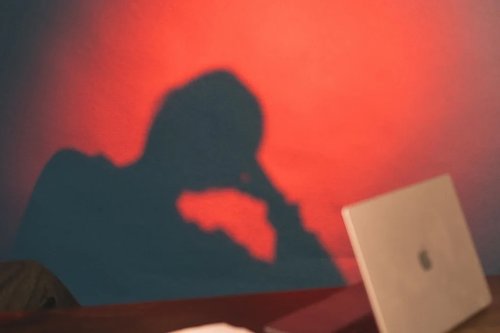
‘We need each other’: Monika Jiang on combating loneliness in hybrid work
Hybrid work offers flexibility but can leave us feeling disconnected. Monika Jiang explores how we can rebuild workplace connections.
Dec 19, 2024
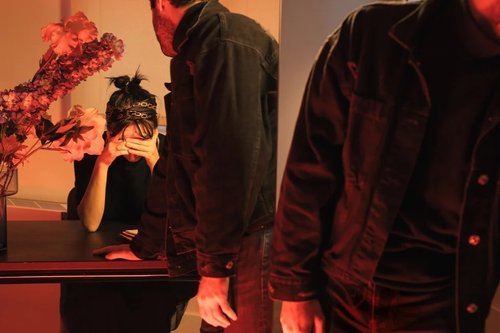
Struggling at work? Here are 3 steps to rebuilding your self-esteem
Low on confidence? Learn how reflection, recharging, and refocusing can help you rebuild self-esteem and thrive professionally.
Nov 27, 2024

10 ways to beat the Sunday Scaries
Even people who love their jobs can experience the Sunday Scaries. Psychologist Karen Doll offers several strategies to help manage and overcome it.
Sep 12, 2024
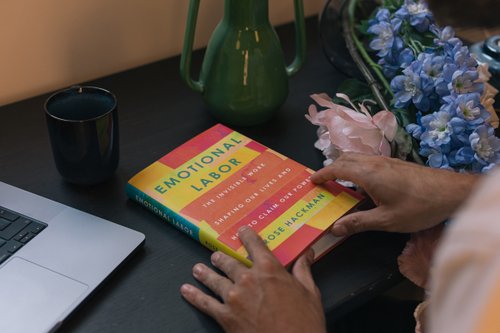
Unpacking the burden of emotional labor
Rose Hackman’s "Emotional Labor" reveals how managing emotions impacts everyone, especially women and minorities.
Aug 08, 2024

Is financial anxiety harming your productivity?
Feeling overwhelmed by financial anxiety? You're not alone. Discover practical steps and expert advice to regain control of your work-life balance.
Jul 31, 2024
The newsletter that does the job
Want to keep up with the latest articles? Twice a week you can receive stories, jobs, and tips in your inbox.

Looking for your next job?
Over 200,000 people have found a job with Welcome to the Jungle.
Explore jobs
